Indigenous Governance Database
exercising sovereignty
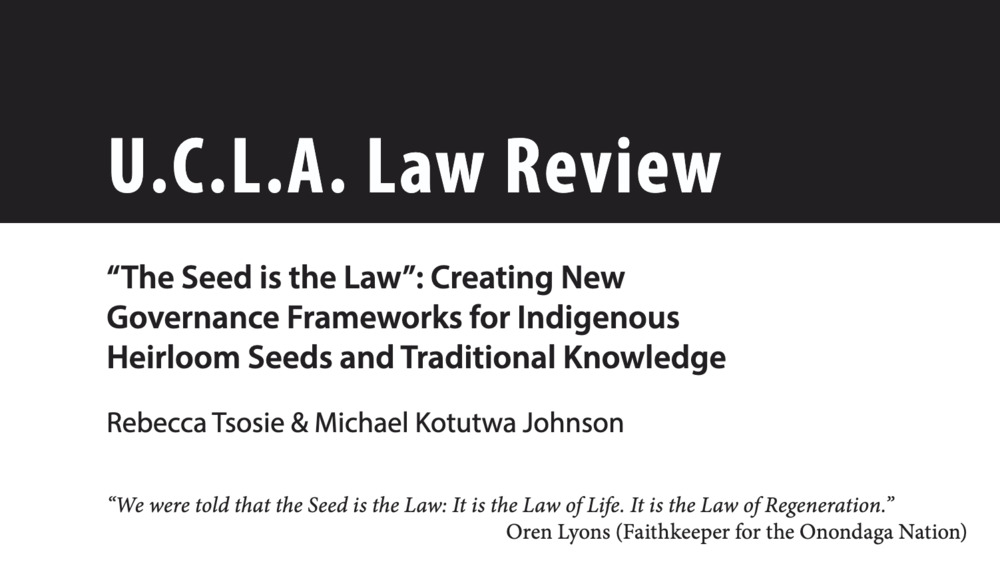
"The Seed is the Law": Creating New Governance Frameworks for Indigenous Heirloom Seeds and Traditional Knowledge
The United Nations World Intellectual Property Organization (WIPO) held a diplomatic conference in May 2024 where participants adopted a historic new treaty on Intellectual Property, Genetic Resources and Associated Traditional Knowledge. The treaty is intended to improve the patent system by…

ʻAʻole Pau Ka ʻIke I Ka Hālau Hoʻokahi (Knowledge Is Not Restricted To One School Of Thought): Reflecting on the Significance of Indigenous Knowledge in Geography
Geography is a discipline that has traditionally been focused on the study of place and space, but understanding and interpreting its concepts has been shaped by a dominating Eurocentric influence. Indigenous knowledge (IK) and perspectives have historically been marginalized or excluded altogether…
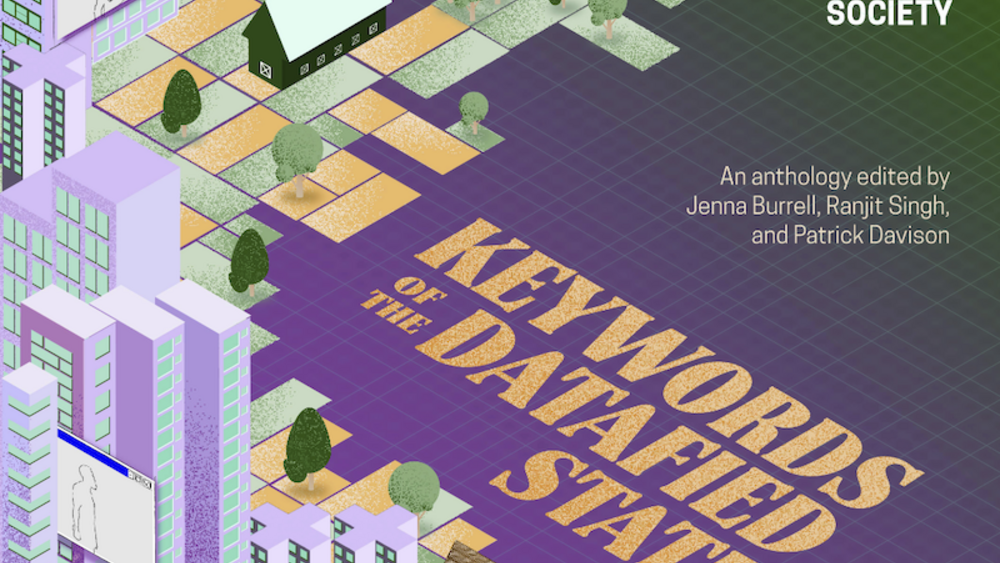
Keywords of the Datafied State: Indigenous Data Sovereignty
Indigenous Data Sovereignty (IDSov) upholds the rights of Indigenous Peoples, communities, and Nations to “govern the collection, ownership, and application” of datasets created with or about Indigenous communities, Indigenous Lands, and the community’s non-human relations. IDSov shifts from…
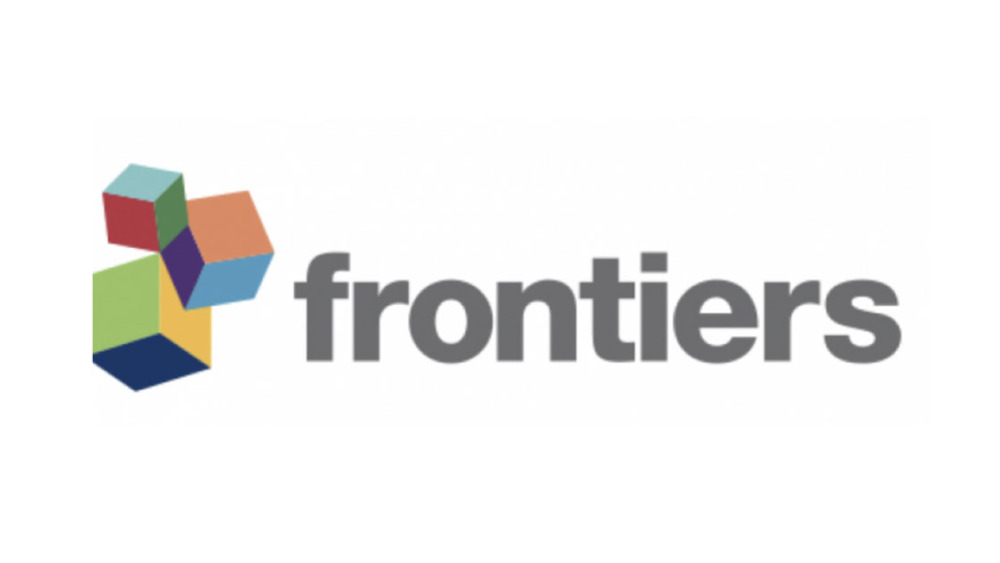
Genetic Research with Indigenous Peoples: Perspectives on Governance and Oversight in the US
Indigenous Peoples are increasingly exerting governance and oversight over genomic research with citizens of their nations, raising questions about how best to enforce research regulation between American Indian, Alaska Native, and Native Hawaiian peoples and researchers. Using a community-engaged…
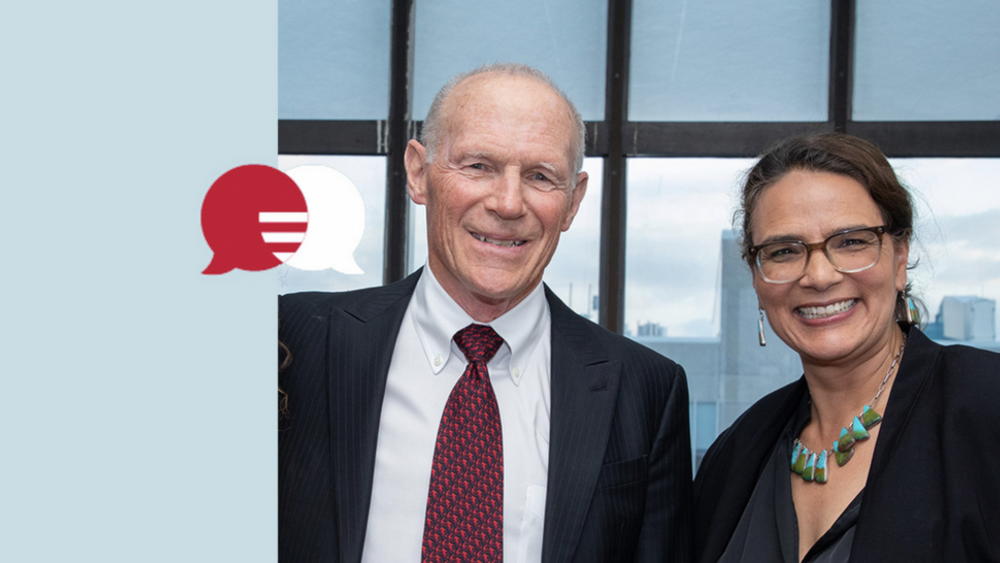
The More Indigenous Nations Self Govern, The More They Succeed
Harvard Kennedy School Professor Joseph Kalt and senior director Director Megan Minoka Hill say the evidence is in: When Native nations make their own decisions about what development approaches to take, studies show they consistently out-perform external decision makers like the U.S. Department of…

State of Indian Nations 2023 Address (SOIN23)
Each year, the President of the National Congress of American Indians presents the State of Indian Nations address to members of Congress, government officials, tribal leaders and citizens, and the American public. Typically delivered during the week that the President of the United States delivers…
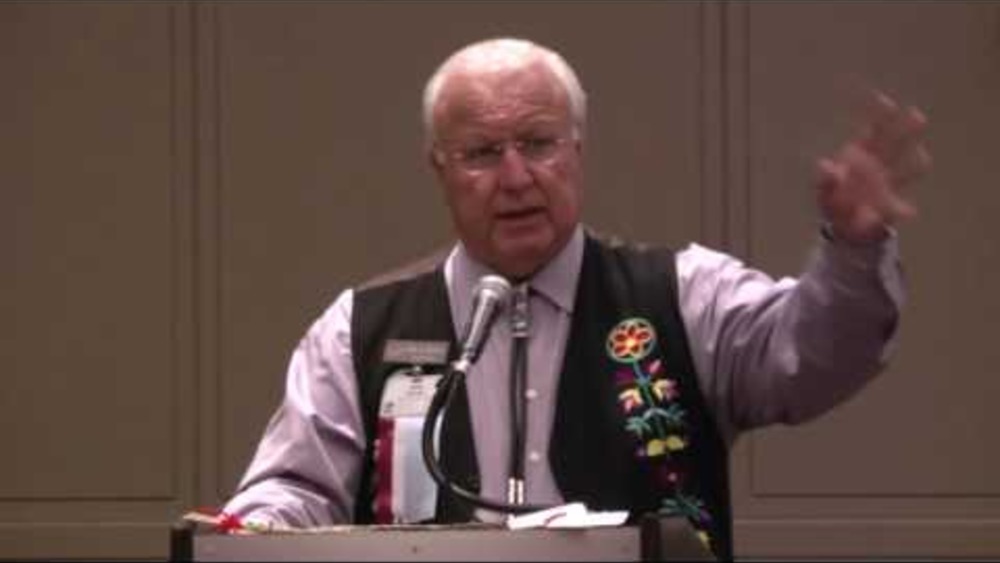
"Modern Tribal Governments, Constitutions, and Sovereignty" Session at NCAI's Annual Convention
This session, convened by NCAI at its 2014 Annual Convention, chronicled the growing movement by tribal nations to reform and strengthen their constitutions in order to reflect and preserve their distinct cultures and ways of life, more effectively address their contemporary challenges, and achieve…
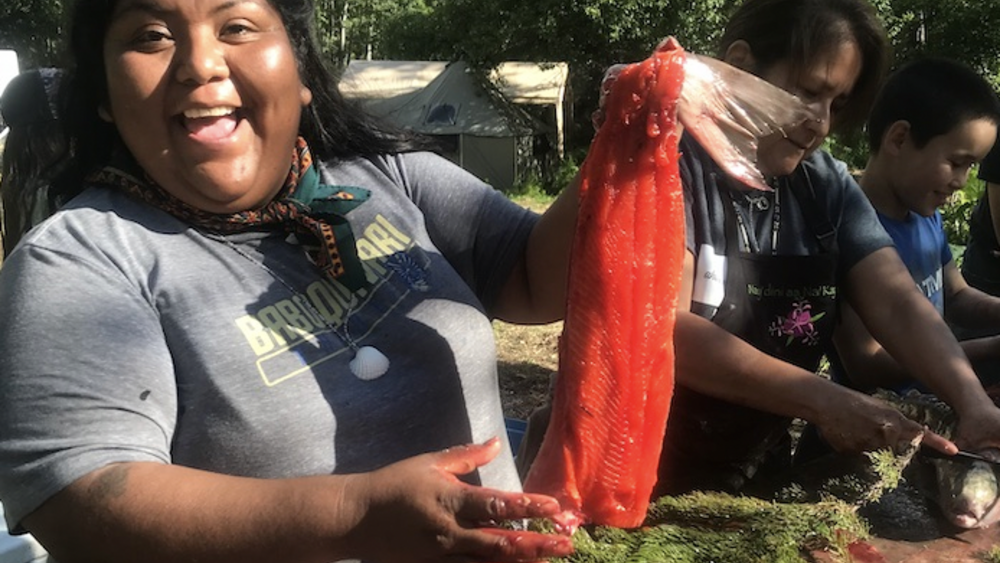
Indigenous Foods Knowledges Network: Facilitating Exchange between Arctic and Southwest Indigenous Communities on Food and Knowledge Sovereignty
On a sunny morning in June of 2019, our hosts at the Athabaskan Nay'dini'aa Na'Kayax' Culture Camp, located near Chickaloon Native Village in south-central Alaska, set up a table near the smoke house and demonstrated how to fillet salmon. It was salmon season in Chickaloon, and young campers were…
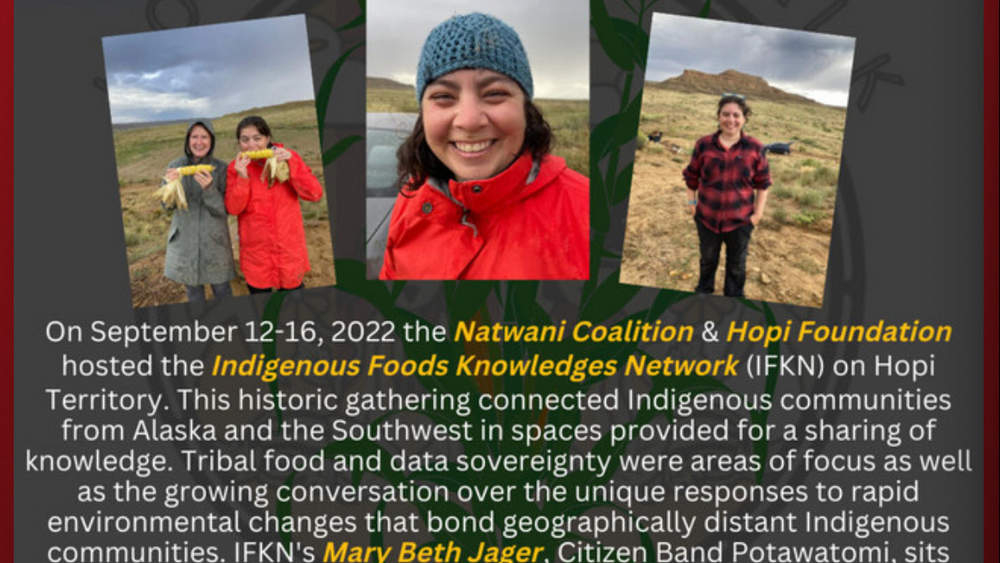
Hopi Farm Talk Podcast: Indigenous Foods Knowledges Network Gathering with Mary Beth Jäger
On September 12-16, 2022, the Natwani Coalition & Hopi Foundation hosted the Indigenous Foods Knowledges Network (IFKN) on Hopi Territory. This historic gathering connected Indigenous communities from Alaska and the Southwest in spaces provided for a sharing of knowledge. Tribal food and data…
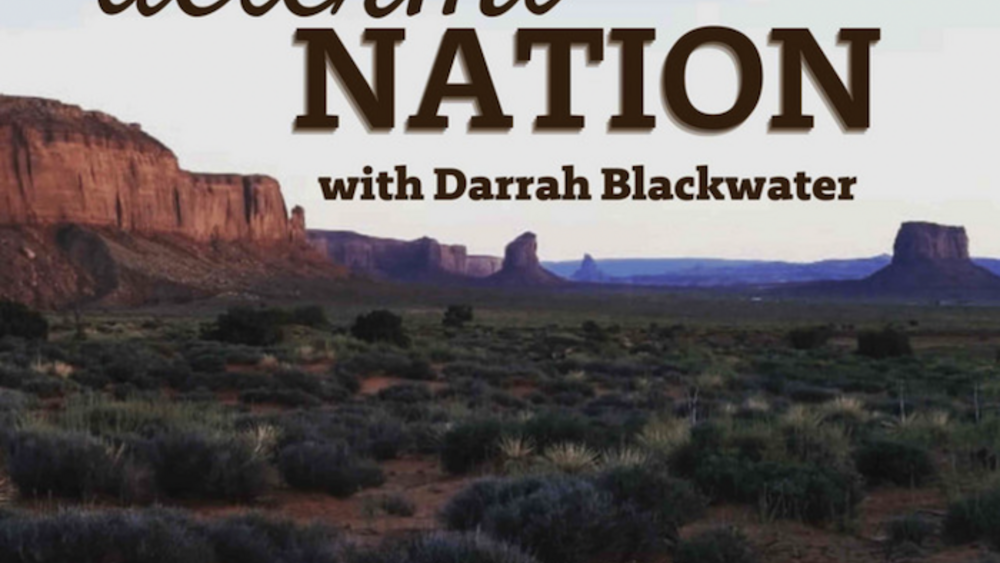
Determi-Nation podcast with Darrah Blackwater
Determi-Nation is a series of conversations with Indigenous people doing incredible things to strengthen sovereignty and self-determination in their communities.
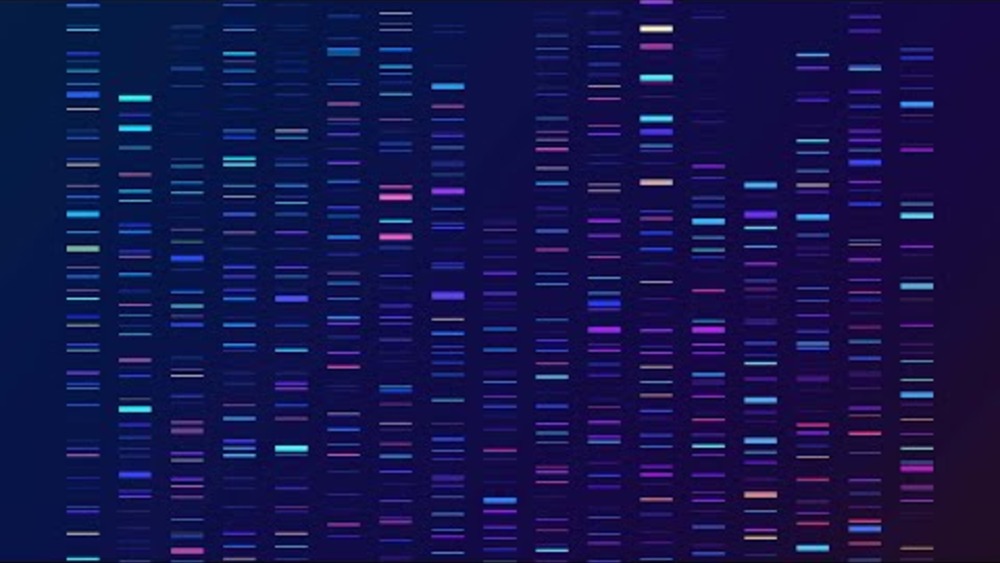
Blood Quantum and Sovereignty
"Blood Quantum and Sovereignty" is a beginner-level conversation focused on why blood quantum is controversial, as well as how it came to be used as an enrollment and citizenship criteria for Native nations. Produced and recorded by Native Governance Center on March 30, 2022. Featuring: Wayne…
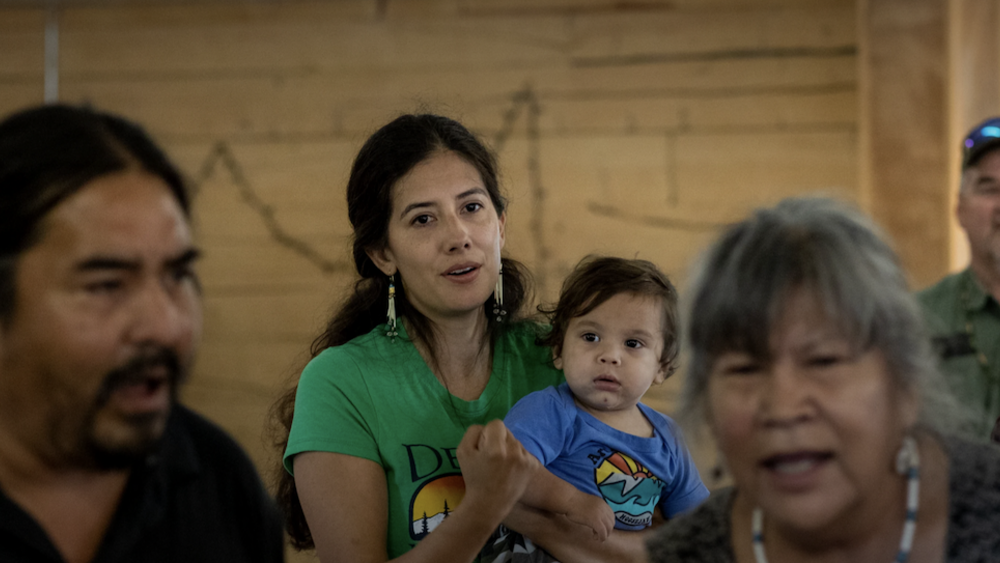
ANCSA: A complete or incomplete story of sovereignty
Shortly after the Alaska Native Claims Settlement Act passed into law in 1971, headlines started appearing in local newspapers that hinted at a growing confusion among Alaska Native communities: “Indian Country hard to define,” stated one Tundra Times edition. “ANCSA and tribalism?” asked another…
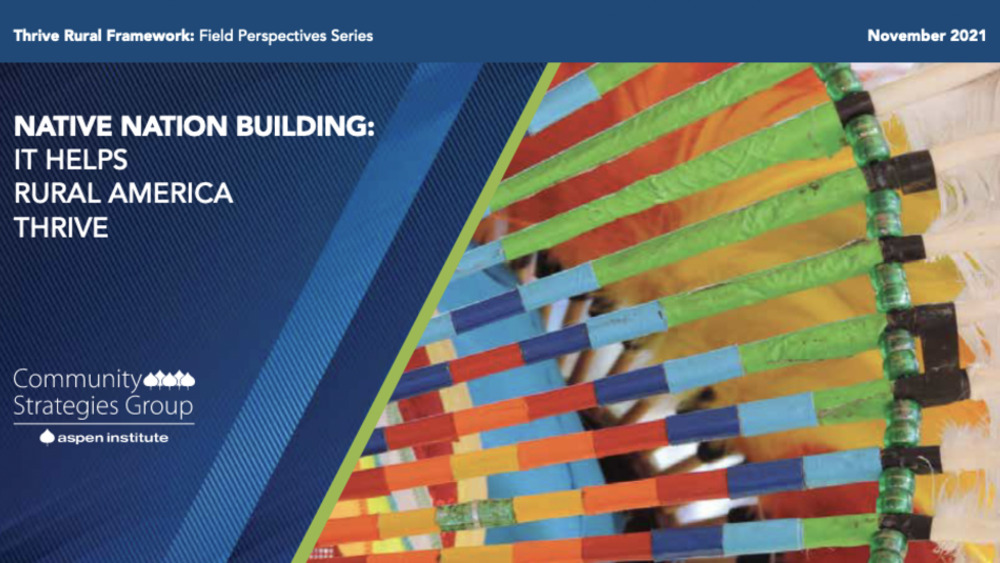
Native Nation Building: It Helps Rural America Thrive
This second paper in the Aspen Institute's Thrive Rural Field Perspectives series shows that when tribes center sovereignty, Indigenous institutions and culture in their development processes they increase the probability of reaching their development goals and can build community wealth that is…
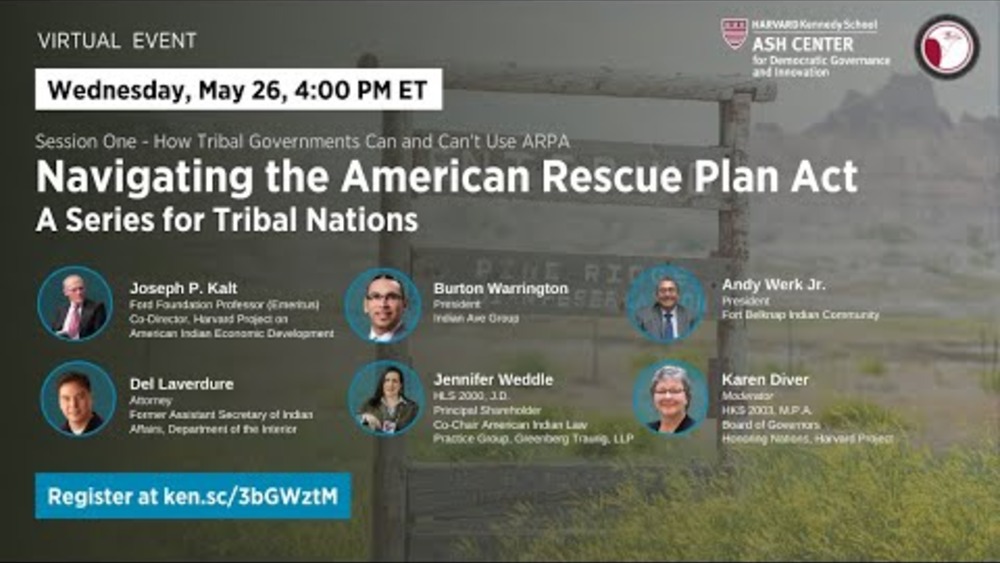
Navigating the ARPA: A Series for Tribal Nations. Episode 1: How Tribal Governments Can and Can't use ARPA
The American Rescue Plan Act (ARPA) provides the largest single infusion of federal funding into Indian Country in the history of the United States. More than $32 billion is directed toward assisting American Indian nations and communities as they work to end and recover from the devastating COVID-…
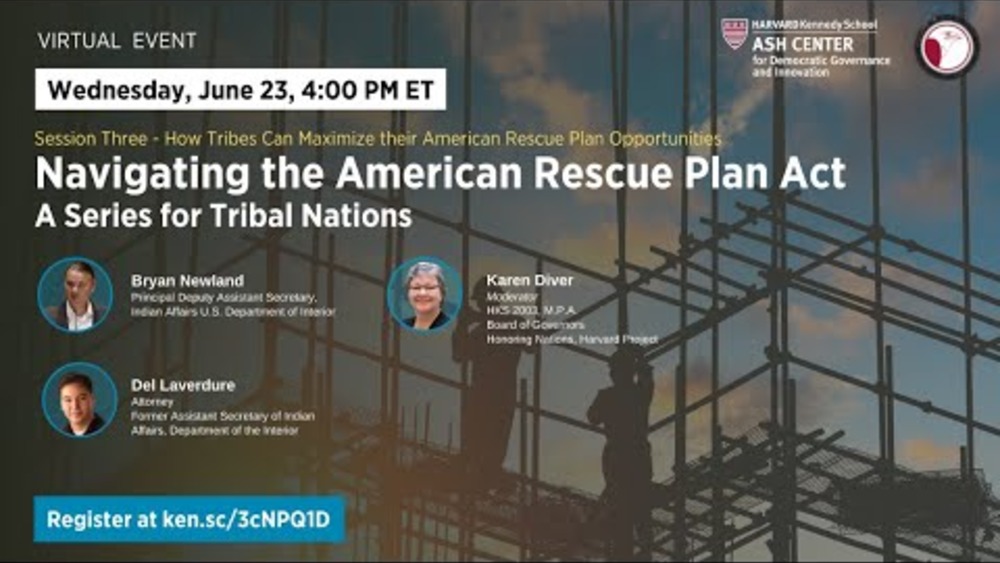
Navigating the ARPA: A Series for Tribal Nations. Episode 3: A Conversation with Bryan Newland - How Tribes Can Maximize their American Rescue Plan Opportunities
From setting tribal priorities, to building infrastructure, to managing and sustaining projects, the American Rescue Plan Act (ARPA) presents an unprecedented opportunity for the 574 federally recognized tribal nations to use their rights of sovereignty and self-government to strengthen their…

The Rise of Indigenous Recognition: Implications for Comparative Politics
Recent decades have ushered in a new era for the recognition of Indigenous rights. Today, more than half of all United Nations member states recognize some form of Indigenous governance in their constitutions (Holzinger et al 2019), and dozens more have done so statutorily. This marks the…
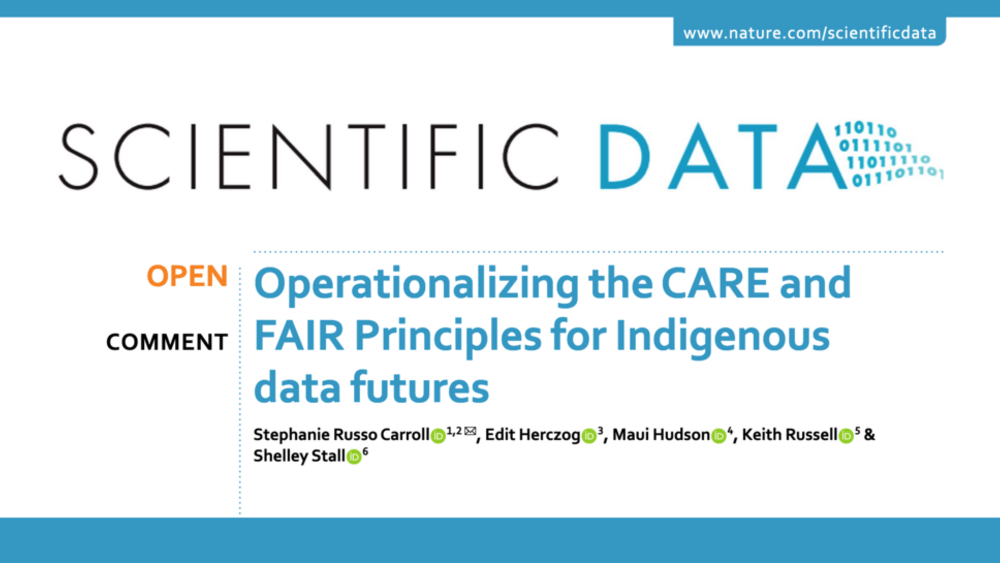
Operationalizing the CARE and FAIR Principles for Indigenous data futures
As big data, open data, and open science advance to increase access to complex and large datasets for innovation, discovery, and decision-making, Indigenous Peoples’ rights to control and access their data within these data environments remain limited. Operationalizing the FAIR Principles for…
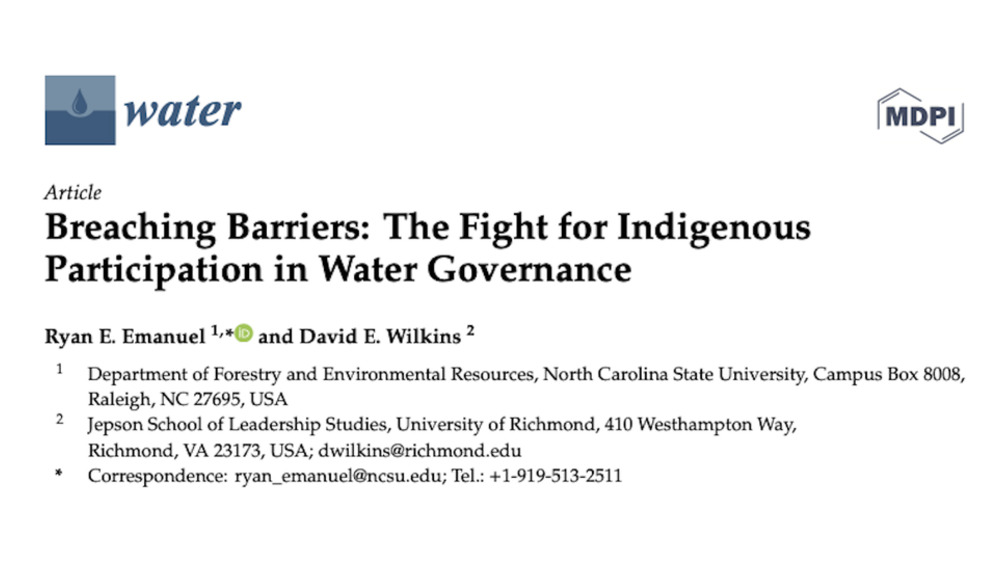
Breaching Barriers: The Fight for Indigenous Participation in Water Governance
Indigenous peoples worldwide face barriers to participation in water governance, which includes planning and permitting of infrastructure that may affect water in their territories. In the United States, the extent to which Indigenous voices are heard—let alone incorporated into decision-making—…
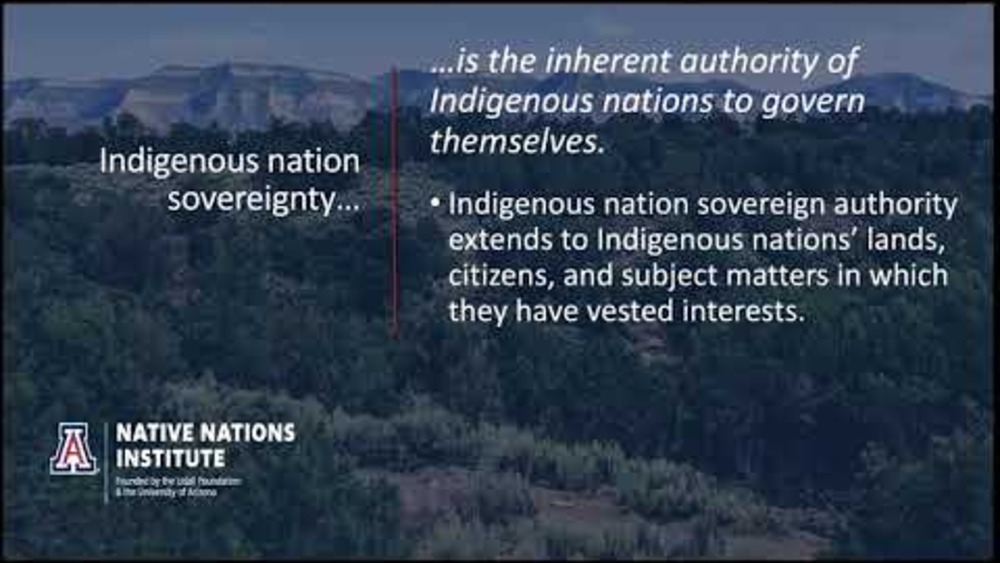
Invisible Borders of Reservations, Tribal Treaties, and Tribal Sovereignty
This 3-part discussion about the invisible borders of reservations, tribal treaties, and tribal sovereignty is led by Dr. Miriam Jorgensen, Research Director of both the University of Arizona Native Nations Institute and its sister organization, the Harvard Project on American Indian Economic…
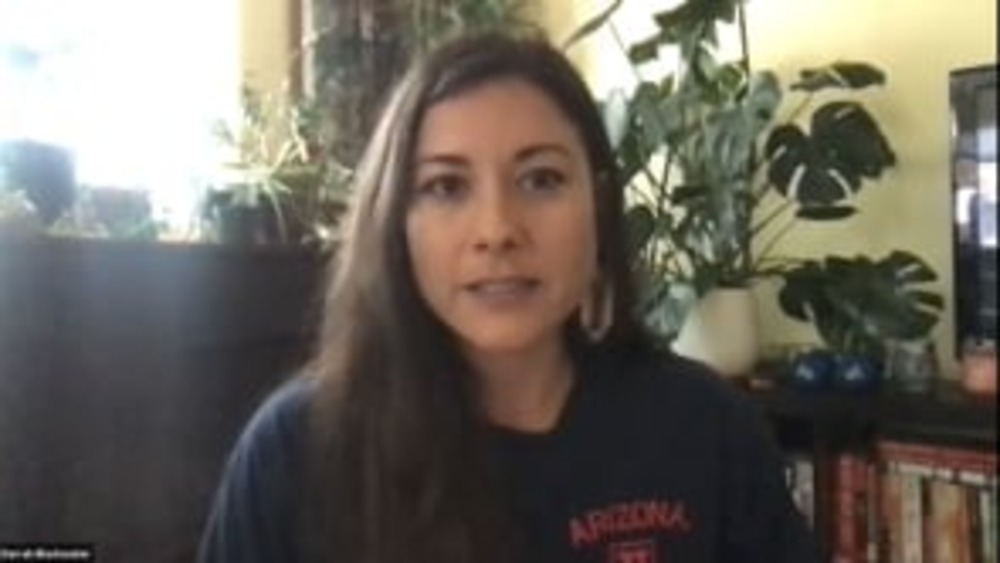
Indigenize the Internet: How to close the digital divide by respecting tribal sovereignty by Darrah Blackwater
Broadband internet and the tools necessary to access it are critical for economic development, education and employment opportunities, and public health and safety for tribal nations and their citizens. Broadband internet is an essential utility, especially during this global pandemic, which is…
